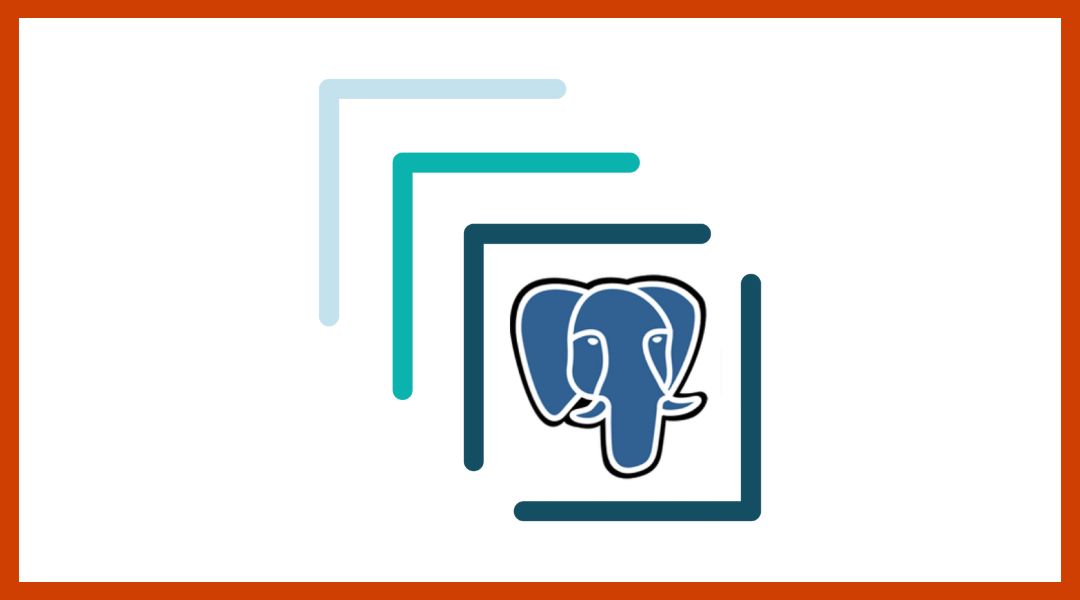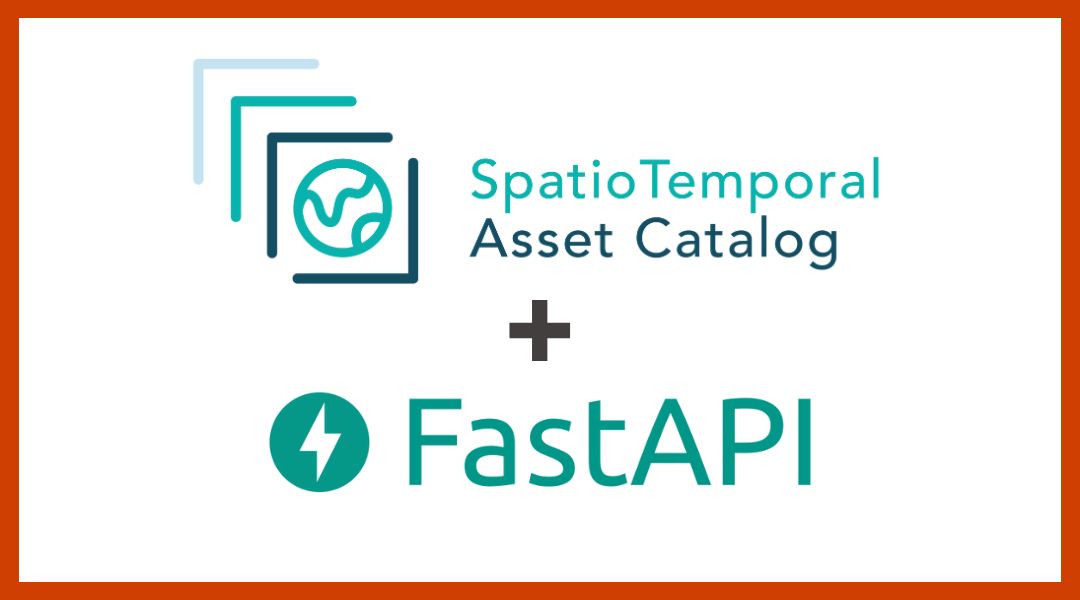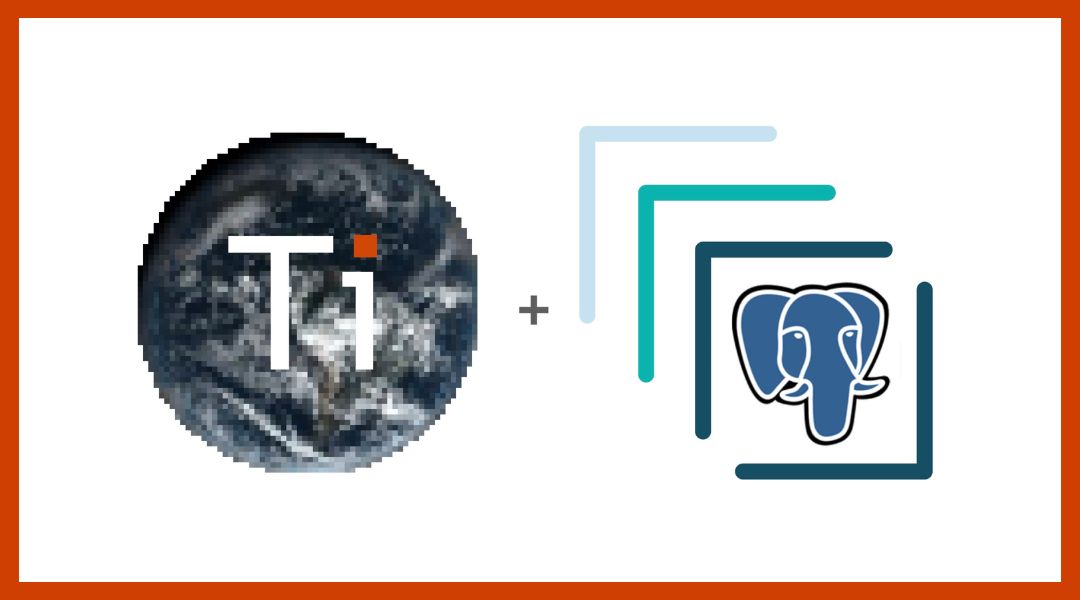
Say hello 👋 to eoAPI, a cloud-native backend for standing up a modern, open geospatial data infrastructure. Built around the STAC specification, eoAPI makes massive earth observation (EO) data archives discoverable and interoperable. EO data is accessible through open community standards for data discovery, allowing your data to connect seamlessly to scientific notebooks, AI pipelines, and dashboard interfaces.
The ecosystem of tools that make up eoAPI were developed in collaboration with NASA’s Interagency Implementation and Advanced Concepts Team (IMPACT), the Microsoft Planetary Computer team, and the Amazon Sustainable Data Initiative. Backends built with eoAPI currently serve metadata for billions (with a b ) of STAC items and dynamically generate hundreds of thousands of image tiles daily.
Under the hood, eoAPI includes a suite of complementary open-source services that provide the building blocks for a modern, open geospatial data infrastructure:
Backends built with eoAPI currently serve metadata for billions of STAC items.
pg-STAC
pg-STAC is an optimized Postgres schema to index and search large-scale STAC collections.

stac-fastapi
stac-fastapi is an Open Geospatial Consortium (OGC) Features API compliant FastAPI application for STAC metadata search.

titiler-pgSTAC
titiler-pgSTAC is a TiTiler extension that connects to pgSTAC to support large-scale dynamic mosaic tiling for visualizing STAC collections and items.

tipg
tipg is an Open Geospatial Consortium (OGC) Features and Tiles API for vector datasets.

We want to make these services' deployment, configuration, and customization more seamless. In our experience building infrastructure for planetary-scale projects, we’ve learned that no single configuration works out of the box for every organization. eoAPI takes a different approach. We are releasing a set of eoAPI Infrastructure as Code (IAC) libraries. These include intelligent defaults for quickly deploying, configuring and scaling EO services while preserving the flexibility to use alternate components, configurations, and runtimes.
- eoapi-cdk - A set of AWS CDK constructs to deploy eoAPI services.
- eoapi-template - An AWS CDK app that shows how to configure the eoapi-cdk constructs.
- eoapi-k8s - IaC and Helm charts for deploying eoAPI services on AWS and GCP.
Why eoAPI
The potential of Earth Observation data is immense in helping us understand our ever-changing planet. To fulfill this potential, we need to provide EO data that can be easily integrated into modern applications and decision-making tools. It’s important that it’s easy to discover, interoperable, ingestible, and optimized for applications. This is a significant challenge for many organizations, and it’s our mission at Development Seed to address this challenge.
The STAC specification, spearheaded by Chris Holmes and Radiant Earth, provides a common language for describing and discovering EO data. Upon this foundation, a wide range of open tools have made publishing and working with EO data at scale easier. This proliferation and creativity is possible because of the flexibility and openness of the standard and a broad community of contributors. But this flexibility creates a new challenge. For an organization seeking to build an infrastructure around STAC, selecting between multiple open projects with varying degrees of interoperability can make it challenging to assemble a comprehensive backend. Which STAC API tooling should I adopt? What tiling services will work with that API implementation?
eoAPI takes the work out of constructing a cloud-native EO infrastructure through an opinionated blueprint that will work well for most EO and geospatial infrastructure needs. Through experimentation and hard-won experience on foundational projects (we’ve been working on the EO data discoverability problem for a looong time), we’ve contributed to and built a suite of STAC-focused technologies that consistently perform well as a backend for making EO archives discoverable and interoperable.
The Smallsat Data Explorer (SDX) part of NASA’s Commercial Smallsat Data Acquisition (CSDA) Program.
eoAPI in Action
eoAPI technology is the backend for several planetary-scale projects. eoAPI would not be where it is now without the vision of our partners who have undertaken these projects or their dedication to building in the open.
- NASA IMPACT is leading the way for how NASA (and space agencies worldwide) can increase the societal impact of their data through cloud-optimized data distribution. They’ve invested significant resources in advancing modern public EO data standards, tools, and platforms. You can see eoAPI services in action across
- Microsoft Planetary Computer - Rob Emanuele and the Planetary Computer team have displayed tremendous vision for advancing open cloud-native standards and tooling. Their investment in foundational open-source projects has resulted in more than just the amazing Planetary Computer platform. It has fostered a strong, rapidly growing community of open STAC technology.
- AWS ASDI Cloud Optimization - The AWS Sustainability Teams and AWS Public Data Sets team pioneered cloud-native standards like COG and defined the modern cloud-native approach. They’ve been excellent collaborators on the challenge to bridge distributed data ownership with a set of common publishing standards that make that data more usable and interoperable.
VEDA (Visualization, Exploration, and Data Analysis) is NASA's open-source Earth Science platform in the cloud.
Active Development
eoAPI is under active development. We’re working on transitioning our eoAPI demonstration project to use our newly released infrastructure libraries as well as making the demonstration data loading a more seamless process, so expect to see some updates here soon.
Community is the core of eoAPI
eoAPI is a collaborative effort driven by the community and built on core libraries with contributions from more than 80 individuals from various organizations.
As the eoAPI community grows, it will be adopted and stretched in ways we haven’t anticipated. We welcome additional code contributions, documentation contributions, feedback, and suggestions. You can contribute directly to issues and discussions in the eoAPI repository. For broader questions about using eoAPI within your organization, reach out to Zac Deziel.
What we're doing.
Latest


